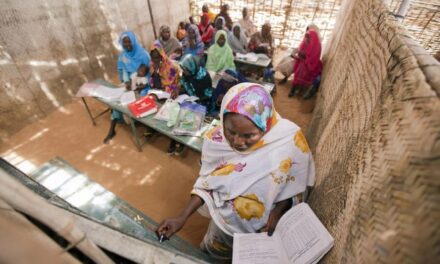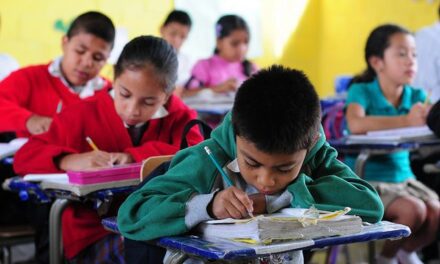
What might the next Supergoal be after 2015?
These thoughts arose during the joint UKFIET DFID Dialogue on Education and Development to 2015 and Beyond event, held on 11 December, 2012 at the Institute of Education, London.
When the MDGs were set out in 2000 a supergoal of poverty reduction lay at their heart. But poverty reduction was not the only development goal to which countries would aspire to achieve during the period 2000-2015. Other supergoals, such as economic growth and security, underpinned a wide range of other global and national development plans and programmes.
More recent discussions of Sustainable Development Goals posit three main supergoals for development – economic development, social inclusion and environmental sustainability. The question now arises whether, in the latest round of discussions around the MDGs, the SDGs are seen as substitutes for or as complements to the supergoal of poverty reduction? Some seek to advance an all embracing notion of development – both global and national – while others continue to focus on those goals and strategies thought to contribute more directly to poverty reduction. In the 1990s UNDP had offered an all embracing framework for development that included both economic development and growth, income distribution, education and health. UNDP called this strategy human development. Economic development was as a vital element for development but was posited as a means to the greater end of human development, rather than as an end in itself. A similar approach is adopted in the LIDC’s approach which posits human wellbeing as the supergoal of development.
Whether economic growth, poverty reduction or human development and well being comes to represent the supergoal of development, education and learning underpin all three. Education and learning have direct effects on economic growth, poverty reduction and human development. Education and learning have indirect effects through their direct effects on health, nutrition, fertility, maternal and child mortality and care for the environment and the direct effects of these on economic growth, poverty reduction and human development. And education and learning enjoy reciprocal effects with the economic growth, poverty reduction and human development and with health and nutrition, water and sanitation. Poverty restricts investment in and the demand for education by households. Poverty is associated with low education of parents, malnutrition and poor health of household members. All three are linked in turn with low enrolment, late enrolment, transition, completion and achievement of their children in school. Absence of sanitation and access to safe drinking water at both home and in schools is associated with health problems which reinforce the effects of poor health on educational access and attainment. Low education outcomes of children increase their chances of remaining in poverty. Moreover when actions are taken across each of these areas simultaneously synergies and virtuous spirals arise which add value to the separate effects of one on the other. Education and learning have direct, indirect, reciprocal and synergistic effects on development.
A return to and extension of the concept of human development and well being is particularly powerful because it can be used by those (such as economic, social and environment development policymakers and planners) who work with concepts of development that focus on the economy and society, by those (such as curriculum development, caregivers, teachers and health workers), who focus their attention on the human development of individuals over time and the broader Education for All goals, including the quality of education, and by those who point to the need for a holistic approach to human development during the formative years of 0-9 years. The Roman poet Juvenal expressed the underlying goal of human development rather well – mens sana in corpore sano – the development of a sound mind in a healthy body.
What are the other potential benefits of human development and well being as the supergoal of development? What other possibilities for Post 2015 supergoals do you consider worth debating?
Rejoin me here on the UKFIET CoP next week when I will be discussing goals, activities and targets as they relate to Post 2015 planning and evaluation. I will challenge us to consider logging off current versions of the log frame, and to make clearer distinctions between global and national targets.






I would like to see a super goal that focusses upon human connectivity and emphasises a ‘we’re in this together’ ethos. Such a goal could link well with the sustainable development approach – a conversation that is really gearing up in the post-2015 discussions now. The current poverty reduction super goal creates a dichotomy of ‘us’ helping ‘them’ that may not be a particularly healthy approach to our work, and one that perpetuates inequality.
Secondly, you mention the Roman poet Juvenal. What other, perhaps modern day, philosophers do you find helpful and would recommend we pay attention to as we debate future development goals?
Thank-you Terra for your comment. I like your proposed supergoal. You ask about contemporary philosophers/political economists. Sen is important, not only on supergoals but more generally on means and ends. The contemporary world economic crisis underlines the importance of some level of postitive economic growth, but the bigger question is what level of growth is necessary to fulfill the basic well being needs of all peoples and of the generations that follow? I look forward to your reply and I hope others too will join the debate.
Education and a Human Development and Well Being Supergoal –
It is an excellent task if it could be achieved for all,all the time. Equity has to be promoted to achieve this noble objective. What has education done to achieve this by all regarding this supergoal? Ha our educationist taken steps to at least minimise the differences that prevail between the poor,powerless and that of the rich and powerful? This is a glaring in front of all over the developing world. Angela how can we respond to these anomalies in such a way that those in the peripheral areas benefit equally and strongly come out to enjoy the modern day super development goals?
S.B Ekanayake